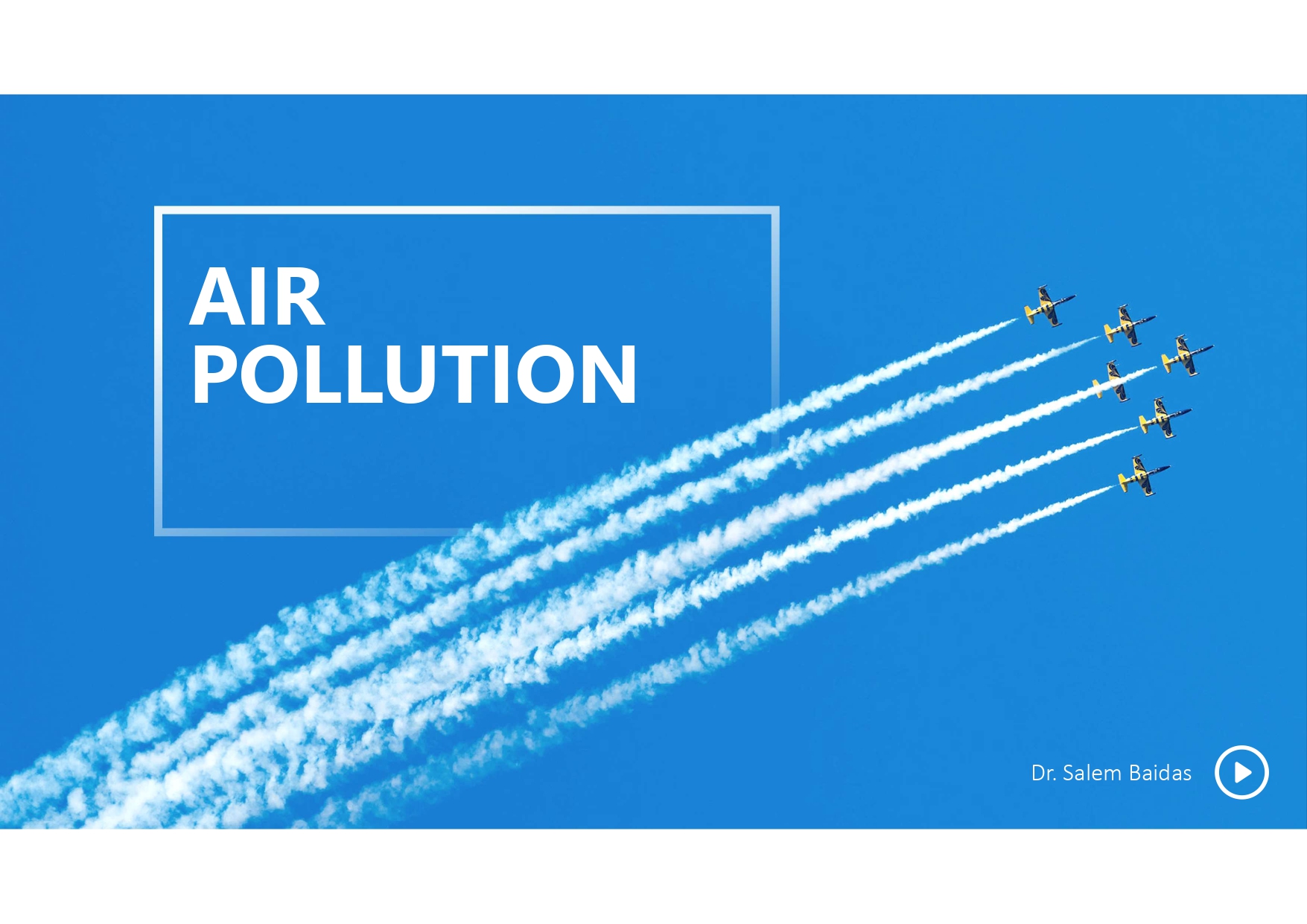Air Pollution
January 2024 – Air Pollution is the presence of toxic chemicals in the air causing health effects, environmental degradation, ozone depletion, and contributing to climate change. Air pollution is caused by fossil fuel combustion, agricultural activities, waste incineration, deforestation, wildfires, and volcanoes. Major air pollutant types are carbon dioxide, nitrogen oxides, methane, sulfur dioxide, ammonia, and particulate matter. Effects of air pollution include human health issues, climate change, ozone depletion, global warming, and acid rain. Air pollution mitigation and control strategies include renewable energy, electric vehicles, clean fuels, carbon capture, and reforestation. In 2019, the Climate and Clean Air Coalition (CCAC) announced the clean air initiative to promote safe air quality, and to align climate change and air pollution policies by the year 2030.
In this slideshow, you will learn about the definition, causes, sources, pollutant types, effects, mitigation, UN policy, and global statistics of air pollution.






















































